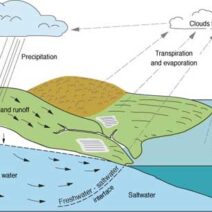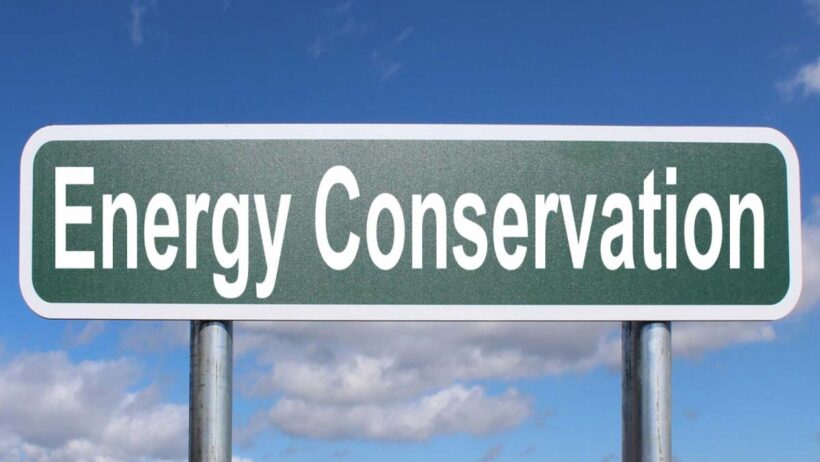In the grand tapestry of existence, energy is the unseen thread that weaves our modern world. It powers our homes, fuels our vehicles, and illuminates our lives. Yet, with great power comes great responsibility; hence the question arises: Is conserving energy actually good for the environment? The answer is unequivocally yes, and the implications stretch far beyond mere statistics. To understand this stratagem’s profound significance, one must delve into the multifaceted relationship between energy consumption, ecological preservation, and sustainable development.
Imagine the Earth as a magnificent garden, lush and vibrant. Each human being is a gardener, responsible for tending to this verdant sanctuary. Just as overwatering can drown a garden, excessive energy consumption can stifle the breath of our planet. By conserving energy, we become conscientious stewards of this natural site, allowing it to flourish instead of withering under the burden of our relentless demands.
The act of conserving energy translates into a myriad of benefits that cascade into the environment. To begin with, reducing energy consumption mitigates greenhouse gas emissions. When fossil fuels—coal, oil, and natural gas—are burned for energy, they release carbon dioxide (CO2) and other harmful pollutants into the atmosphere. These emissions contribute to climate change, a dilemma that jeopardizes ecosystems and global inhabitants alike. By trimming unnecessary energy use, we diminish the volume of greenhouse gases released, which is akin to supplying a cooling balm to an anguished planet.
Furthermore, energy conservation has a ripple effect on the preservation of natural resources. The extraction of fossil fuels incessantly ravages landscapes and depletes precious resources, often resulting in habitat destruction and biodiversity loss. When individuals and industries consciously choose to consume less energy, they, in turn, reduce the demand for such drastic extraction processes. This shift becomes a protective mechanism for myriad species and ecosystems that rely on the sanctity of their habitats.
Renewable energy sources have become the heroes of energy conservation. Wind, solar, and hydroelectric energy surge forth as cleaner, sustainable alternatives. By prioritizing energy conservation, there emerges a golden opportunity to transition towards these renewable resources. Imagine transforming our collective reliance on finite resources into a harmonious symphony where clean energy not only meets our needs but also unfolds a new narrative for our planet’s future. Herein lies the unique allure of conserving energy; it fuels the rejuvenation of ecosystems while displaying our commitment to a sustainable existence.
Moreover, the socioeconomic implications of energy conservation are striking. As communities harness energy-efficient practices, they often witness substantial reductions in energy bills. This economic liberation allows for reinvestment into local businesses or social initiatives, igniting a circular economy that thrives on conscious consumerism. The allure of saving money on energy can act as a catalyst, inspiring individuals to engage more deeply with sustainability efforts. In essence, energy conservation not only honors the environment but fortifies community resilience by alleviating financial constraints and engendering economic empowerment.
To illustrate further, consider how the simple act of turning off lights in unoccupied rooms epitomizes the conservation mindset. This seemingly trivial action ripples through the fabric of our energy consumption, culminating in a range of benefits. The reduction in energy demand leads to decreased power plant output, lessening pollution and lowering the environmental burden on surrounding areas. When we conserve energy in our daily habits, we signify an intrinsic understanding of our role within the delicate web of life, embracing a mindset that transcends personal gain for collective good.
However, one must also acknowledge that energy conservation is not a panacea. To truly unravel the multifarious complexities of environmental degradation, systemic changes are imperative. Policymakers and stakeholders must collaborate to create frameworks that incentivize energy-efficient technologies and systems. For example, retrofitting buildings for energy efficiency, investing in public transportation, and encouraging the use of sustainable materials can engender a substantial transformation in energy consumption trends. These initiatives, acted upon collectively, can act as the keystones propelling societies toward resilience and ecological harmony.
In addition, education plays a pivotal role in the energy conservation narrative. Raising awareness about the profound impacts of energy use can galvanize individuals and entire communities. Workshops, campaigns, and community engagement initiatives can foster a deeper understanding of how energy conservation relates not only to personal benefit but to planetary health. A collective epiphany can emerge, akin to a flash of enlightenment, wherein individuals grasp their power as decision-makers in energy consumption.
In summation, conserving energy is more than a responsible habit; it is a noble pursuit that profoundly benefits the environment, enhances quality of life, and fosters economic stability. The interdependence between our actions and the health of our planet is undeniable. As conscious gardeners of Earth, we hold the power to cultivate a landscape brimming with life, sustainability, and balance. The beauty of energy conservation resonates with the quiet promise of a flourishing future. In embracing this ethos with fervor, we not only uphold our moral duty but also craft a legacy of stewardship that generations to come can inherit—an intricate masterpiece painted in the vibrant colors of ecological harmony and human ingenuity.








